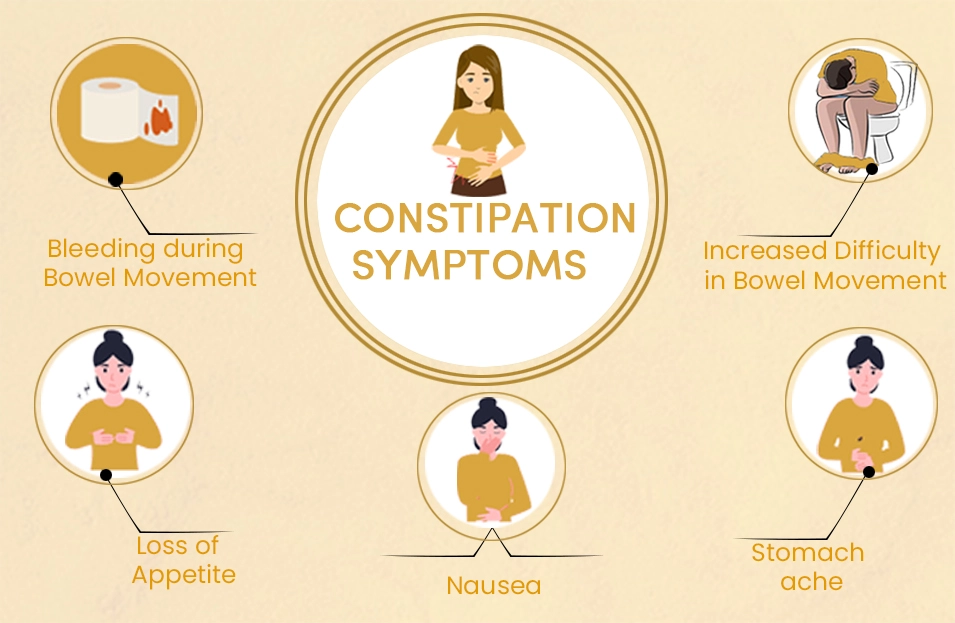The Best Remedies For Your Child’s Constipation

Introduction:
If you’re a parent, you’re probably watching your baby’s every giggle, hiccup, and cry for clues about his well-being. However, some signs of trouble can be a little harder to spot.
For example, intestines change a lot during your child’s life. Sometimes these changes can be a sign that your baby is constipated.

Symptoms of Constipation
A baby who eats only breast milk may not have a bowel movement every day. Often almost all nutrients are absorbed. It is very common. In fact, babies who eat only breast milk almost never become stressed.
Mixed babies, on the other hand, can have up to three or four bowel movements a day or every few days.
However, the normal bowel movements of healthy babies vary widely and are greatly influenced by the type of milk, whether solids are added, and what specific foods are consumed.
Understanding the possible signs of constipation can help you spot a potential problem before it becomes a serious problem.

Infrequent Defecation
A child’s daily bowel movements vary, especially when you get to know the baby’s new foods. If your child does not have a bowel movement for more than a few days and then the stool is hard, he may be constipated.
Constipation is defined not only by the frequency of the bowels, but also by their consistency (ie they are hard).
Straining
In case your child is straining whereas making a bowel development, this may be a sign of obstruction. Blocked up babies regularly deliver exceptionally difficult, clay-like stools.
Difficult stools can be troublesome to pass, so they may thrust or strain more than normal to pass the squander. They may moreover be fastidious and cry when having a bowel development.
Blood within the stool
On the off chance that you take note streaks of shinning ruddy blood on your Child’s Constipation stool, it’s likely a sign that your Child’s Constipation is pushing exceptionally difficult to have a bowel development. Pushing and straining or passing a difficult stool may cause modest tears around the butt-centric dividers, which can result in blood within the stool.
Firm stomach
A tight stomach can be a sign of constipation. Bloating and pressure from constipation can fill or strain your baby’s stomach.
Refusal to eat
Your child may feel full quickly if they are constipated. They may also refuse to eat due to increasing discomfort.
Remedies for your baby’s constipation
If you notice signs of colic, you can try some strategies to comfort your Child’s Constipation. Contains:
Exercise
Just like adults, exercise and movement can irritate a baby’s intestines.
However, since your baby may not yet be walking or crawling, parents or caregivers can help them exercise to relieve constipation.
While the baby is lying on its back, the parent or caregiver can gently move the baby’s legs to simulate the motion of riding a bicycle. This can help your bowel function and heal the disease.

A warm shower
Giving a infant a warm shower can unwind their stomach muscles and offer assistance them halt straining. It can too diminish a few of the distress relating to obstruction.
Hydration
Youthful newborn children don’t regularly require supplemental fluids as they get their hydration from breast drain or equation.
Be that as it may, babies over 6 months who are eating strong nourishments may advantage from drinking additional water between bolsters.
Natural product juice
Newborn children who have not however begun on strong nourishments may advantage from taking 1–2 ounces of natural product juice, such as 100% prune, pear, or apple juice.
The sugar within the juice is difficult to process. As a result, more fluid enters the guts, which makes a difference increment the recurrence and water substance of stools. The extra water relaxes and breaks up the stool.
In any case, a parent or caregiver ought to talk with a pediatrician some time recently giving a baby juice for the primary time.
Other eating habits
Some dietary changes can help relieve constipation, but these vary depending on the child’s age and diet.
Breastfed babies may benefit from trying another formula. Before doing this, it is best to talk to a qualified doctor.
If your child eats solid foods, he can benefit from foods that are good sources of fiber, such as:
- chopped broccoli or carrot
- whole grains such as oats, wheat or barley bran
- peaches, pears or prunes
Massage
Gentle massage can help relieve constipation. Here are some tips:
- Use your fingertip in a clockwise circular motion on your stomach.
- Run your fingers around the fleet clockwise.
- Hold the child’s knees and legs together and gently press the legs towards the stomach.
- With the edge of your finger, pull down the chest past the navel.

Rectal temperature measurement
When a Child’s Constipation is clogged up, a specialist may prescribe taking their rectal temperature with a clean, greased up thermometer to assist them pass stool.
It is critical not to utilize this method exceptionally frequently, because it can make clogging more regrettable.
The infant may begin not needing to pass a bowel development without offer assistance, or they may start to relate having a bowel development with distress, leading them to whine or cry more amid the method.
A healthcare proficient can exhort on how to do this securely.
If the changes don’t work
Changing your child’s diet (or yours) will almost certainly help, but if not, there are other techniques you can use.
You can do many of these techniques at home, but if you haven’t used them before, talk to your doctor. They want to give you specific instructions.
These techniques include:
Glycerin suppository
In the event that your child already has had signs of an butt-centric tear (shinning ruddy blood within the stool) after passing a difficult stool, a glycerin suppository may once in a while be supportive for facilitating a bowel development out of the body.
These suppositories can be obtained over the counter and utilized at domestic. Take after the informational on the bundle in the event that your child is over 2 a long time ancient or inquire your specialist some time recently utilizing in case your child is beneath 2 a long time ancient.
Laxatives
Over-the-counter diuretics for babies over 6 months may be supportive when other strategies don’t work.
Diuretics made from a malt-barley extricate (Maltsupex) or psyllium powder (Metamucil) can mellow your more seasoned child’s stool, but they are not prescribed for babies. Conversation to your specialist some time recently giving any purgative to a child beneath 1 year ancient.
When to see a doctor
It is best to call the pediatrician if the Child’s Constipation still does not pass stool or if he has other signs, such as:
- blood in the stool
- irritability
- signs of abdominal pain or severe swelling
Treatment usually begins with home remedies. If home remedies do not help, the doctor can examine the child and in rare cases prescribe medicines such as:
- laxatives
- stool softeners
- enemas
- suppositories
These medicines should never be given to a child unless prescribed by a doctor.

Conclusion:
Constipation can cause discomfort and irritability in a child. Some home remedies can help relieve constipation, such as gentle massage or baby leg exercises.
If symptoms do not improve, the pediatrician may recommend additional strategies.
Frequently Asked Questions:
What helps 6 month old with constipation?
Fruit juice – If your infant is at least four months old, you can give certain fruit juices to treat constipation. This includes prune, apple, or pear juice (other juices are not as helpful). You can give a total of 2 to 3 ounces (60 to 120 mL) of 100 percent fruit juice per day for children four to eight months old.
Why is my 6 month old poop hard?
Constipation is when your baby’s poo is hard and dry, making it difficult for them to poo. Sometimes, doing a hard poo can be painful. It’s common for babies to have constipation when they are changing from formula or breast milk to solid foods.
Is it normal for a 6 month old to be constipated?
Infant constipation isn’t common. However, signs a baby might have infant constipation include: Hard or pellet-like stools. Bowel movements that appear painful or difficult to pass, causing your baby to arch his or her back or cry, accompanied by hard, dry stools.



